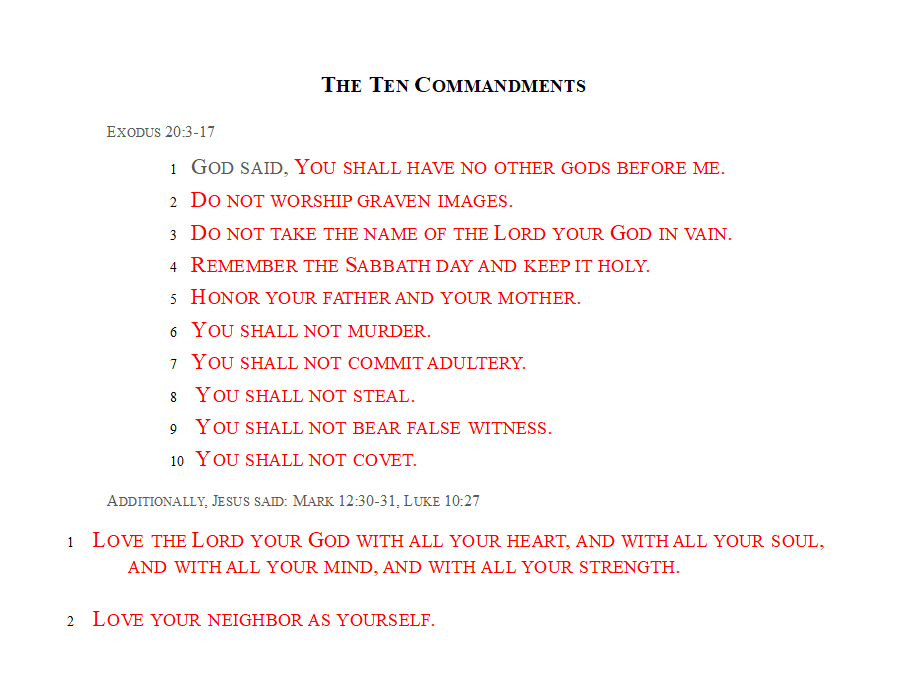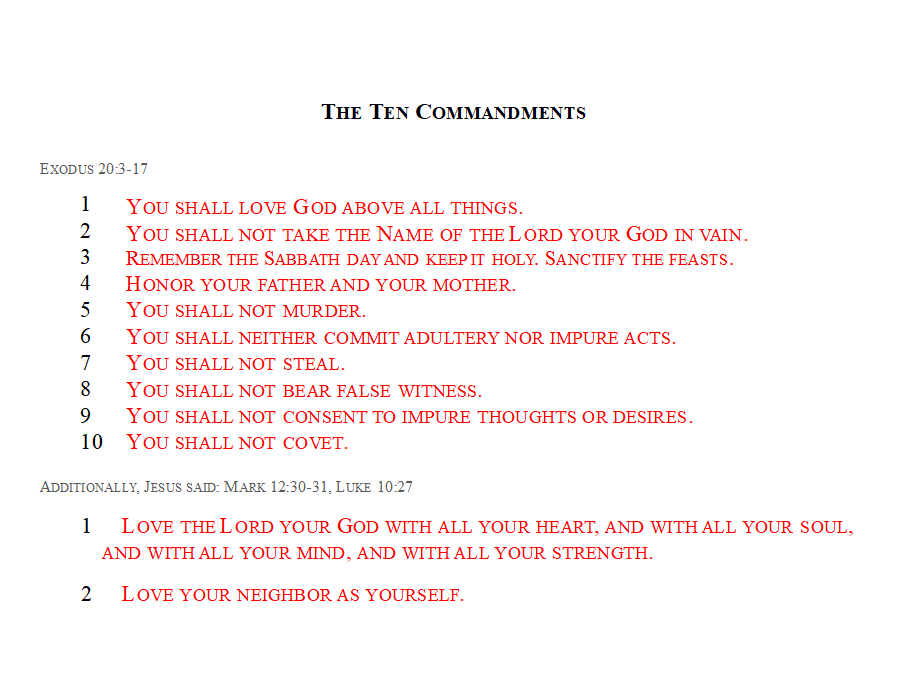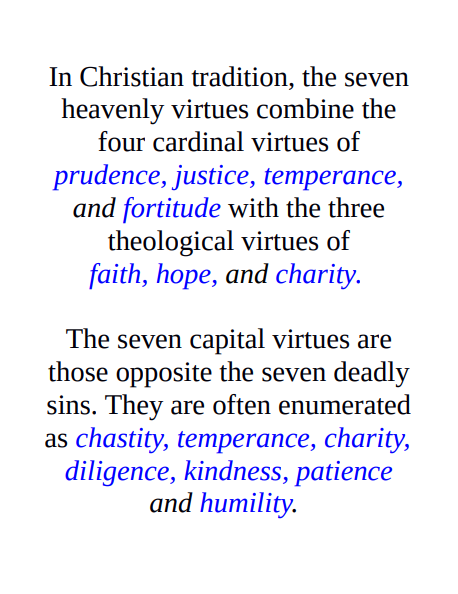Resource 1 – Examination of Conscience pamphlet PDF direct link by The Fathers of Mercy
This is solid gold. It has the Ten Commandments, the virtues, the seven deadly sins, the Prayer of Contrition, and a questionnaire called an Examination of Conscience for a person to consider to call to mind what faults and failures they should confess.
It’s free if you want to try to print it out and fold it and keep it available. They can mail you one for a donation.
You should also search out other Examination of Conscience questionnaires for help in being thorough.
The Ten Commandments (With Commentary)
English Catholic Version – Direct Link to a PDF that you can save

English – Direct Link to a PDF that you can save
The Ten Commandments were given to Moses by God when God visited Moses on Mount Sinai in Israel, and inscribed everything down in the Hebrew language onto stone tablets.
Why there are two versions is somewhat of a mystery. Regardless, the Lord meets us where our faith is, and so both are valid, and Protestants may not be aware of a Catholic variant, and vice versa.
I put some amount of research into arriving at the correct enumeration, going back to what Jewish people use, and for English they split the words out like the version directly above. However, the Catholic Church is established by Saint Peter, ‘the rock’ on which Jesus testified to ‘build His Church’, and so things have been that way going on 2,000 years.
Commandment 2 in the normal version says You shall not worship graven images. This is because fallen angels set up rock or clay idols as a counterfeit god, and the Lord warned the Israelites against that behavior. In modern days, it amounts to a commandment ensuring that people don’t set up other idols, like self, or career, or politics, or admiring someone to excess. It’s a warning against materialism and worldliness.
Commandment 10 in the normal version says You shall not covet (generally, which is correct). You shall not covet your neighbor’s wife, nor your neighbor’s land, nor your neighbor’s cattle, or anything that is your neighbor’s, is what you get out of the text in Exodus.
In the Catholic version Commandment 1 encompasses that we love God above all things, and avoid idols, materialism, so-called false gods, etc.
Commandment 2 skips to You shall not take the name of the Lord your God in vain. Some have argued that Catholics’ use of statues in their churches, outside their churches, and in their lawns or on their porches is incorrect, however that argument itself is incorrect. They appreciate pious sculpture, artwork, and iconography, and Catholics do not worship statues or images, nor do they worship saints. Catholics do not worship Saint Mary – that’s a misunderstanding. They have a wider, fuller faith with the added benefit of Church Tradition (some 2,000 years’ worth).
Commandment 9, You shall not covet your neighbor’s wife, I have through finding better wordings in research, adjusted to more of a true interpretation that gets to the core. Catholics would generally lump Commandment 9 with Commandment 6, You shall not commit adultery, although there may be some overlap yet anyway, not to get into gross details. For Commandment 9 I have it listed as You shall not consent to impure thoughts or desires. Remember the Beatitudes: Blessed are the pure in heart, for they will see God.
I’ve included these as resources for you to print out. I would suggest to print out one of these on an 8 ½” by 11″ sheet of paper and put it on your wall to help keep the Laws of God on your heart. If you don’t have a frame and merely use a push pin, that’s better than nothing.
The Virtues – Direct Link to PDF
This list of virtues was copied off of Wikipedia, and it makes a beautiful 8 ½” x 11″ adornment for your wall. Work on memorizing this, and meditate on it and take it to heart.


